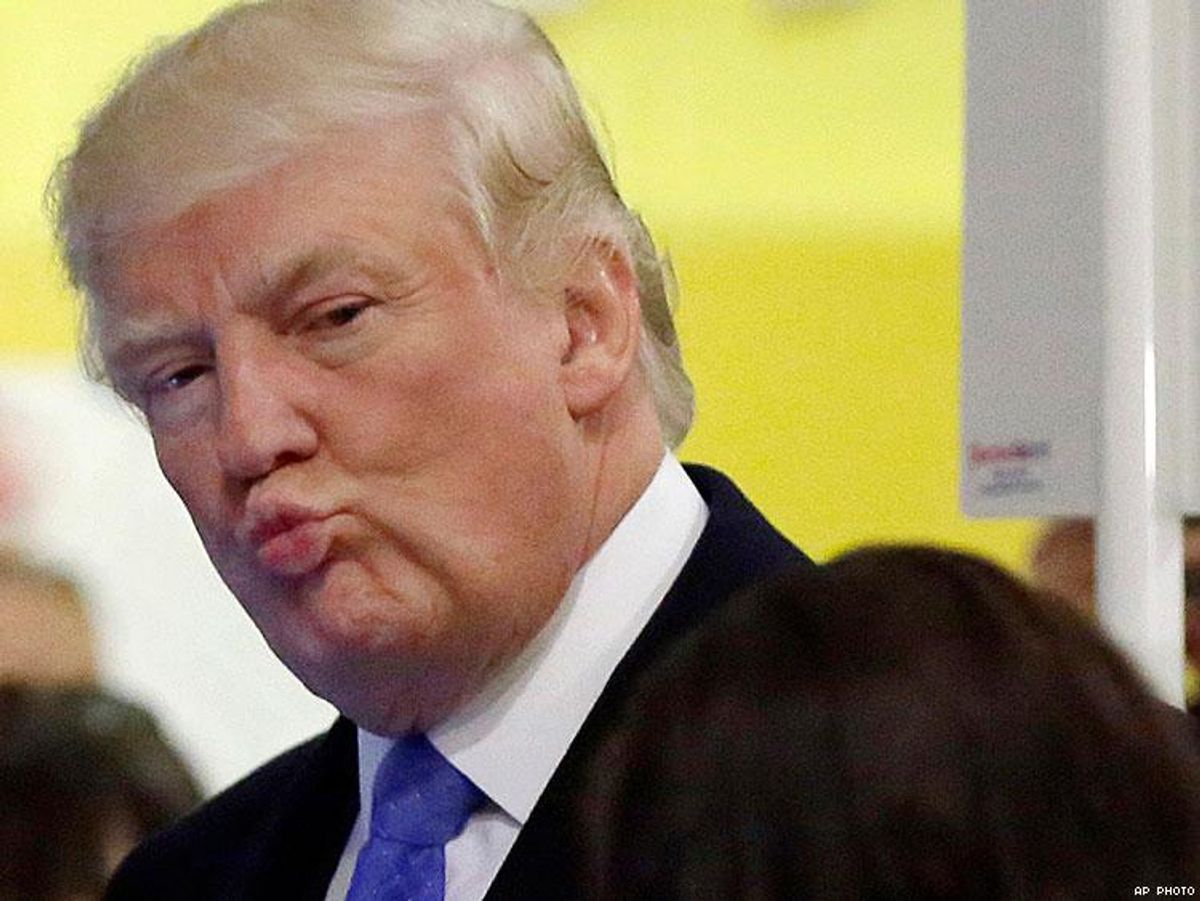There have been 437 reported acts of verbal and physical harassment recorded by the Southern Poverty Law Center since voters elected Donald Trump president of the United States.
Appointments such as Steve Bannon to Trump's administration and a failure to seriously address the hateful Trump campaign rhetoric, the social justice watchdog organization says there's no telling how high that number will grow.
"I think there is the idea that these ideas or this behavior is sort of relegated to rural areas or "flyover country... that's not the case at all," Ryan Lenz from Southern Poverty Law Center tells The Advocate. "It's happening everywhere. It's happening in cities, in small towns, it's happening on the coast and in the heartland, it's all over the place."
The center began tracking incidents the day after Trump was elected, just like in 2008 when then President-elect Obama was voted into office. The SPLC recorded incidents back in 2008, but the difference now is with Trump, it's becoming an ongoing issue. Though Lenz says what is different this time around is that even though some might debate the effects of rhetoric to cause violence, SPLC says history shows differently. And recent appointments such as Steve Bannon as Chief Strategist don't support Trump's message of unity, which he delivered on 60 Minutes last Sunday.
"The days to come are like critically important in terms of the political tenor of this country over the next four years, and it doesn't seem like the rhetoric is going away," says Lenz.
The reports of violence certainly haven't. Though SPLC can't verify all of the claims of violence and harassment it receives, NBC News and other outlets were able to
verify several of the claims, including the words "Trump Nation, Whites Only" written on a walls of a
church with Spanish-language services last Sunday, or "Make America White Again" showing up on a softball field wall in New York hours after the election.
Schools have seen many incidents, too. A New School dorm resident in New York City posted an
image of a swastika drawn on the door where three jewish women live. And a social media post reported by
Dallas Morning News about
a veteran who was kicked out of a Chili's restaurant on Veteran's day because a white Trump supporter reportedly claimed the man, who is black, wasn't a veteran and that his service dog wasn't a real service dog.
Social media is filled with reports, many real, but some false, about hateful incidents. And new data indicates the hate might not just stop at incidents but result in criminal acts. This week, the FBI released it's official report on hate crimes, indicating a six percent increase since last year driven by a 65 percent increase in hate crimes against Muslims. Though as Vox points out, the many barriers to collecting and reporting accurate hate crime data are plentiful, and numbers are hard to rely on.
Hate crimes are the legal charges reported by law enforcement agencies of crimes fitting statutory hate crimes definitions. In comparison, SPLC reports are mainly self-initiated and don't directly track crimes. But no matter the source, the timing of the increase seems more than coincidental.
"It comes at the end of a campaign in which President-elect Donald Trump blew a whistle to a number of far-right extremist ideologies, from anti-black to to anti-immigrant to anti-LGBT," says Lenz. "What is surprising is just how rapidly it started after the election. It was almost as if with the election of Donald Trump that his followers, the adherents of far-right ideology had seen a green light to conduct themselves and purport themselves with complete disregard for humanity and politeness."
And, SPLC and others think with the appointment of Stephen Bannon, the former Breitbart executive and Trump campaign CEO who they say has clear ties to
white nationalism, as Chief Strategist is the sound of the whistle ringing louder and clearer.
SPLC has urged the President-elect to take a much
stronger stance against the violence and hate rhetoric, even taking out a full page ad in
The Wall Street Journal denouncing the deplorable position of putting anyone connected with white nationalism in the White House.
And other initiatives are working to track the incidents of violence post-election, such as the Kenyan technology company
Ushahidi,
New York Daily News journalist Shaun King and professors at Massachusetts Institute of Technology and Harvard University.
But, as the number grows each day, everyone is left wondering just how big the surge of more visible and emboldened hate will become.


Viral post saying Republicans 'have two daddies now' has MAGA hot and bothered